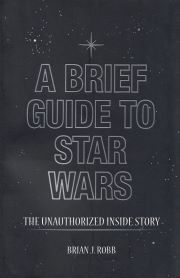Not long ago I saw a few pictures that someone had posted online of the old and short-lived science fiction television series Logan's Run (1977 - 1978), a quick-to-television spinoff of the feature film from the year before. For some reason I almost never watched it; but when I did, it was in a casual way, unfocused and in little bits scanned from my bedroom's television set tuned to local station CKVR. I ignored Logan's run simply because I was growing out of watching television as appointment television.
When does one slow down on watching television? I'm speaking of American prime time dramatic programs — or sitcoms, which I almost never watched. Even with the litany of kids' things many of us in that time of our lives still managed to clock a lot of TV. But the ritual stops as we discover other things on our road to maturation. Or whatever. Some people just enjoy watching their favourite shows. It makes them happy, often after a long day.
I started to drift away in my mid to late teens. For example, this once regular viewer of The Six Million Dollar Man didn't watch the show's fifth and final season (1977 - 1978). I remember popping down and into the rec room one evening to grab a book from the bookcase and caught my siblings watching the follow-up episode to "Death Probe": "Return of the Death Probe." I turned to them and said: "You're still watching this?" Their even more youthful faces than my own beamed enjoyment. There on the television rolled what appeared to be an armoured go-kart, somewhat like the first model, but even more equipped.
I started to drift away in my mid to late teens. For example, this once regular viewer of The Six Million Dollar Man didn't watch the show's fifth and final season (1977 - 1978). I remember popping down and into the rec room one evening to grab a book from the bookcase and caught my siblings watching the follow-up episode to "Death Probe": "Return of the Death Probe." I turned to them and said: "You're still watching this?" Their even more youthful faces than my own beamed enjoyment. There on the television rolled what appeared to be an armoured go-kart, somewhat like the first model, but even more equipped.
(Both "Death Probe" and "Return of Death Probe" were two-parters.)
An admission: I enjoyed "Death Probe" when it first aired, even if it did feature a cruder version of machine compared to the sequel vehicle of destruction. This then youth knew the whole concept was rubbish, but, as was the case with more than a few Six Million episodes, there was an entertaining comic book fun vibe to "Death Probe".
But, my times were changing.
One day in 1995 I got a nasty wake-up call. A few of my coworkers emoted shocks and 'tears' as they recounted the latest episodes of Chicago Hope and ER. I stood in awe and bemusement as my mug of coffee got cold.
"Death Probe", first or second story, started to sound appealing.
But, my times were changing.
One day in 1995 I got a nasty wake-up call. A few of my coworkers emoted shocks and 'tears' as they recounted the latest episodes of Chicago Hope and ER. I stood in awe and bemusement as my mug of coffee got cold.
"Death Probe", first or second story, started to sound appealing.
Last year, courtesy of The Six Million Dollar Man Complete Series DVD set, I rewatched "Death Probe", the first installment in the robotic line. It was entertaining, in a 'back to my youth' sort of way. Being a two-part episode it did feel at times to drag a little, running at about the maximum speed of the probe prop — not very fast. Part Two's climactic, and major, set piece, an extended sequence featuring Steve Austin's attempt to stop the runaway rolling robot dead in its tracks, is not without interest or tension, but it would have benefitted from a little trimming. (Keep in mind that a completed episode needed to consist of about 4,500 35mm feet to fill a one-hour television timeslot back then.) The positive aspects, of which there are a few, are topped off by its drawing power for a young person: in January of 1977 I was on the probe's radar set.
Now that I have the complete-series set, and "Death Probe" charged me enough to give it a passing grade, I can consider scanning "Return of Death Probe". First, however, I'll watch a documentary on the Soviet "Lunokhod" lunar rovers. Now that I think about it, the Six Million Dollar Man writers should have written an episode, a two-parter, of course, where Steve is sent back to the moon to stop a rampaging Lunokhod 3 rover. (Oscar Goldman: "Pal, it's heading for the OSI's secret lunar remote intelligence-gathering station, and it must be stopped.")
Nostalgic television rocks.


























